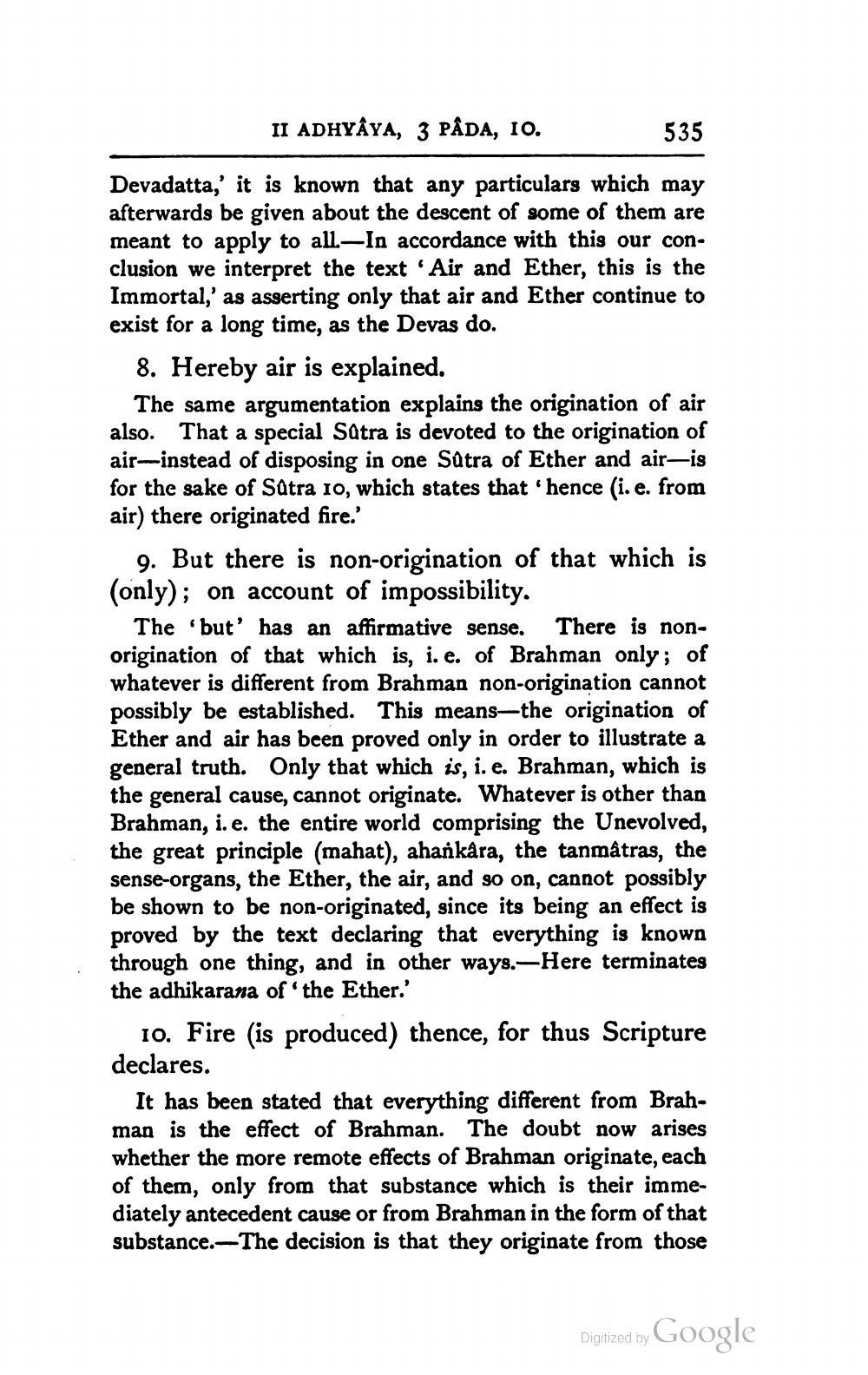________________
II ADHYÂYA, 3 PÂDA, 10.
535
Devadatta,' it is known that any particulars which may afterwards be given about the descent of some of them are meant to apply to all.-In accordance with this our conclusion we interpret the text 'Air and Ether, this is the Immortal,' as asserting only that air and Ether continue to exist for a long time, as the Devas do.
8. Hereby air is explained.
The same argumentation explains the origination of air also. That a special Satra is devoted to the origination of air-instead of disposing in one Satra of Ether and air—is for the sake of Satra 10, which states that 'hence (i. e. from air) there originated fire.'
9. But there is non-origination of that which is (only); on account of impossibility.
The 'but' has an affirmative sense. There is nonorigination of that which is, i.e. of Brahman only; of whatever is different from Brahman non-origination cannot possibly be established. This means the origination of Ether and air has been proved only in order to illustrate a general truth. Only that which is, i.e. Brahman, which is the general cause, cannot originate. Whatever is other than Brahman, i.e. the entire world comprising the Unevolved, the great principle (mahat), ahankara, the tanmatras, the sense-organs, the Ether, the air, and so on, cannot possibly be shown to be non-originated, since its being an effect is proved by the text declaring that everything is known through one thing, and in other ways.—Here terminates the adhikarana of the Ether.'
10. Fire (is produced) thence, for thus Scripture declares.
It has been stated that everything different from Brahman is the effect of Brahman. The doubt now arises whether the more remote effects of Brahman originate, each of them, only from that substance which is their immediately antecedent cause or from Brahman in the form of that substance.—The decision is that they originate from those
Digitized by Google
Digitized by




